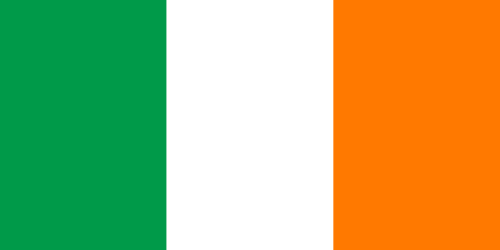Ireland, an island nation located in the North Atlantic, is known for its rich history, lush landscapes, and vibrant culture. With a history that spans thousands of years, Ireland has a heritage steeped in mythology, struggle, and resilience. Today, it is a country that balances its historical roots with modernity and progress.
The following days are public holidays in Ireland 2025
- New Year’s Day is on Wednesday, January 1st.
- St. Brigid’s Day is on Monday, February 3rd.
- Saint Patrick’s Day is on Monday, March 17th.
- Easter Monday is on Monday, April 21st.
- May Day is on Monday, May 5th.
- June Bank Holiday is on Monday, June 2nd.
- August Bank Holiday is on Monday, August 4th.
- October Bank Holiday is on Monday, October 27th.
- Christmas Day is on Thursday, December 25th.
- St. Stephen’s Day is on Friday, December 26th.
This list reflects the major public holidays observed in the Republic of Ireland.
- St. Brigid’s Day: A traditional Irish Christian festival.
- St. Patrick’s Day: The national holiday of Ireland, celebrating the patron saint of Ireland.
- Bank Holidays: These are public holidays in Ireland.
The following days are public holidays in Ireland 2024
- New Year’s Day: Monday, 1 January 2024
- St Brigid’s Day: Monday, 5 February 2024
- Saint Patrick’s Day: Sunday, 17 March 2024
- Easter Monday: Monday, 1 April 2024
- May Day: Monday, 6 May 2024
- June Bank Holiday: Monday, 3 June 2024
- August Bank Holiday: Monday, 5 August 2024
- October Bank Holiday: Monday, 28 October 2024
- Christmas Day: Wednesday, 25 December 2024
- St Stephen’s Day: Thursday, 26 December 2024

History
- Ancient Ireland: Archaeological evidence suggests human presence in Ireland since around 10,000 BC. Celtic tribes settled in the region around 600 BC, bringing with them the Gaelic language and culture.
- Christianization: In the 5th century AD, St. Patrick brought Christianity to Ireland, leading to the establishment of monasteries and a golden age of Irish culture and learning.
- Norman and English Rule: The Normans invaded in the 12th century, marking the beginning of over 800 years of English influence and control.
- Famine and Emigration: The 19th century was marked by the Great Famine, resulting in mass emigration and a significant decrease in the Irish population.
- Struggle for Independence: The early 20th century saw the Irish War of Independence, leading to the partition of Ireland in 1921 and the formation of the Irish Free State (later the Republic of Ireland) in the south.
Geography
- Island Geography: Ireland, known as the Emerald Isle, is the second-largest island of the British Isles, encompassing about 84,421 square kilometers.
- Natural Landscapes: Characterized by rolling green hills, rugged coastlines, and iconic landmarks like the Cliffs of Moher and the Giant’s Causeway.
- Climate: Ireland has a mild but changeable oceanic climate, with abundant rainfall and a lack of temperature extremes.
Economy
- Rapid Growth: Known as the “Celtic Tiger” in the late 20th century for its rapid economic growth, driven by foreign investment, low corporate tax rates, and an educated English-speaking workforce.
- Post-2008 Recovery: After a severe economic downturn following the 2008 global financial crisis, Ireland has recovered, with a focus on technology, pharmaceuticals, and finance.
- Agriculture: Despite industrialization, agriculture remains important, with Ireland being a major exporter of beef, dairy products, and seafood.
Politics
- Government: Ireland is a parliamentary democracy with a president as the ceremonial head of state and a prime minister (Taoiseach) as the head of government.
- European Union Membership: Ireland joined the European Economic Community (now the EU) in 1973, which has significantly influenced its economic and political landscape.
- Northern Ireland: The status of Northern Ireland remains a central political issue, particularly in the context of the UK’s withdrawal from the EU (Brexit).
Society and Culture
- Population: Ireland’s population is around 4.9 million (2020). It is known for its youthful demographic and increasing multiculturalism.
- Cultural Heritage: Rich in arts, literature, and music, Ireland has a strong tradition in storytelling, folk music, and dance. It is the birthplace of notable writers like James Joyce, W.B. Yeats, and Samuel Beckett.
- Language: English is the most widely spoken language, but Irish (Gaelic) is the first official language and is taught in schools nationwide.
- Religion: Predominantly Roman Catholic, but with increasing secularization in recent years.
Challenges and Prospects
- Economic and Social Challenges: Issues such as housing shortages, healthcare system pressures, and rural-urban divides are prominent.
- Environmental Focus: Increasing emphasis on renewable energy and environmental conservation.
- Globalization and Identity: Balancing economic globalization with the preservation of cultural identity and heritage.
Ireland’s story is one of a small island with a far-reaching influence. It continues to be a nation that balances its historical past with a dynamic and forward-looking present, making significant contributions in fields ranging from literature and music to technology and global diplomacy.
Video about the sights of Ireland
Facts and Infos about Ireland
- Population: 4.5 million (UN, 2010)
- Capital: Dublin
- Area: 70,182 sq km (27,097 sq miles)
- Major languages: English, Irish
- Monetary unit: 1 euro = 100 cents
- Internet domain: .ie
- International dialling code: +353

